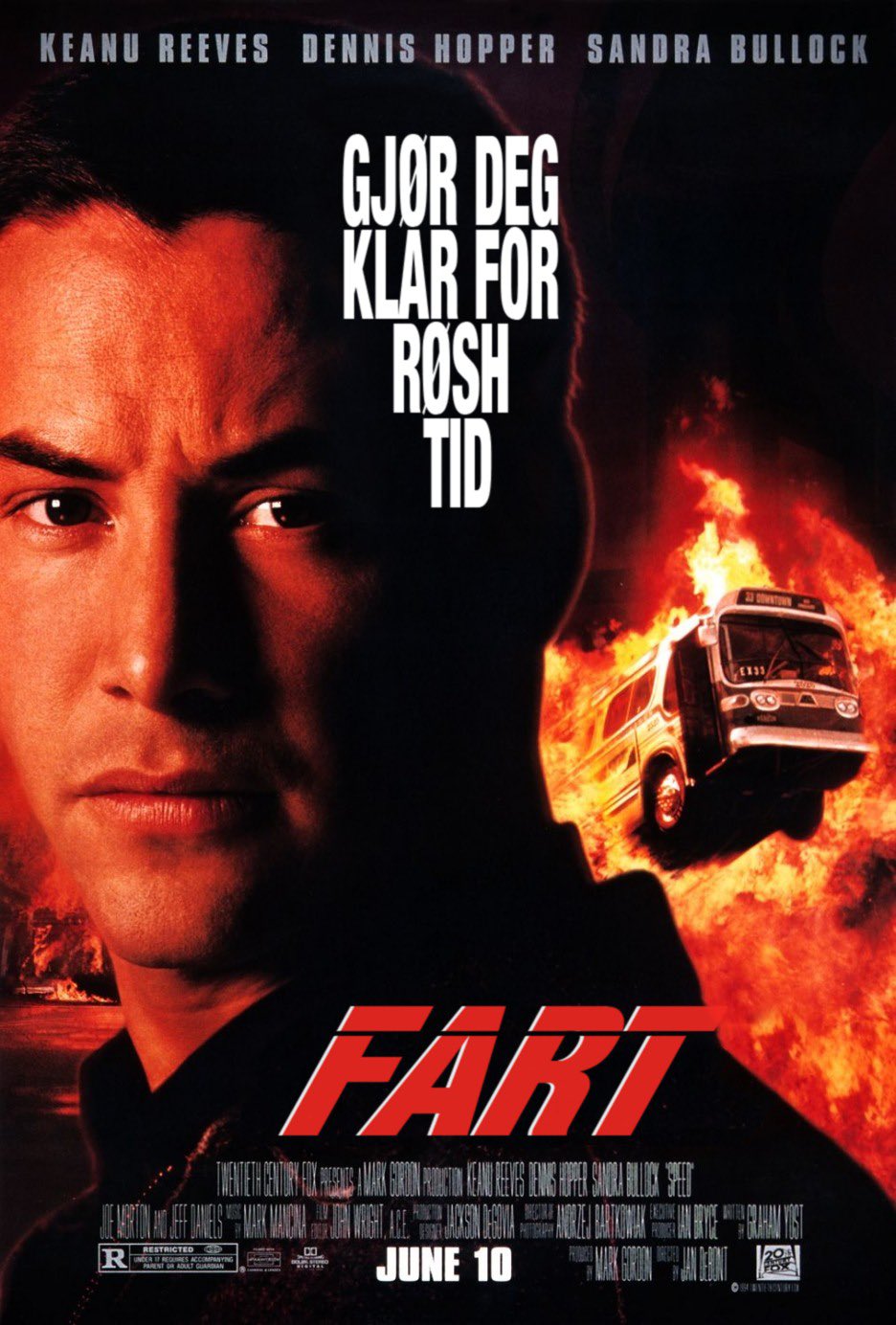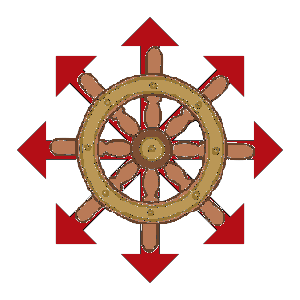deleted by creator
Remind me again how this works?
https://en.wikipedia.org/wiki/Buffalo_buffalo_Buffalo_buffalo_buffalo_buffalo_Buffalo_buffalo
“Buffalo buffalo Buffalo buffalo buffalo buffalo Buffalo buffalo” is a grammatically correct sentence in English that is often presented as an example of how homonyms and homophones can be used to create complicated linguistic constructs through lexical ambiguity. It has been discussed in literature in various forms since 1967, when it appeared in Dmitri Borgmann’s Beyond Language: Adventures in Word and Thought. The sentence employs three distinct meanings of the word buffalo:
- As an attributive noun (acting as an adjective) to refer to a specific place named Buffalo, such as the city of Buffalo, New York;
- As the verb to buffalo, meaning (in American English[1][2]) “to bully, harass, or intimidate” or “to baffle”; and
- As a noun to refer to the animal (either the true buffalo or the bison). The plural is also buffalo.
A semantically equivalent form preserving the original word order is: “Buffalonian bison that other Buffalonian bison bully also bully Buffalonian bison.”
I’ve never understood it until this comment - well done!
Tbh, neither did I until I read it hahaha
Abeolute legend you are, thank you!
Wow, hurt people hurt people. Even Buffalo buffalo
It doesn’t, but that won’t stop pedants from pretending it does so they can feel smarter than you.
This isn’t pedantic, it’s just a fun playing with word. And don’t even bother to call me a pedant for pointing this out.
deleted by creator
Wenn Fliegen hinter Fliegen fliegen, fliegen Fliegen Fliegen nach.
The horse raced past the barn fell.
In the title of the show, there are spaces between Tom and And and And and Jerry.
The King’s English
I take it you already know
Of tough and bough and cough and dough?Others may stumble, but not you,
On hiccough, thorough, slough and through.Beware of heard, a dreadful word, That looks like beard but sounds like bird.
And dead: It’s said like bed, not bead – For goodness’ sake, don’t call it deed!
Watch out for meat and great and threat… They rhyme with suite and straight and debt.A moth is not the moth in mother, Nor both in bother, nor broth in brother.
And here is not a match for there, Nor dear and fear for bear and pear,
And then there’s dose and rose and lose – Just look them up – and goose and choose.And cork and work and card and ward, And font and front and word and sword.
And do and go, then thwart and cart, Come, come, I’ve hardly made a start!
A dreadful language? Why, sakes alive! I’d learned to speak it when I was five.
And yet, to write it, the more I tried, I hadn’t learned it at fifty-fiveNot sure if that’s the name of the poem. It’s been (mis)attributed to a T.S. Watt, called “English”. A similar poem is The Chaos by Gerard Nolst Trenité, here read by Youtuber Lindybeige.
My mistake. I had it saved in an old note. Thanks for the correction!
And here is not a match for there, Nor dear and fear for bear and pear,
🤔
shit - adjective, bad
the shit - noun, good
.
you are shit - shit is an adjective, you are bad
you ain’t shit - shit still functions as an adjective, in some contexts this might be a good thing, but the phrase “you ain’t ____” most often is used to say the person doesn’t reach the level of the blank. For example “you ain’t all that” means you think/act like you are “all that” but you’re not at the level of “all that” you’re less than all that. If you “ain’t shit” it means you’re so bad that you’re less than shit, you dont even reach the level of shit with how bad you are. This is a devestating insult.
you are not the shit - the shit is a noun, its good, so not being the shit is insulting
you are the shit - the shit is a noun meaning good so this is a complement
“We’re in the shit now” - the shit, noun, bad
ain’t is a contraction of “am/are not” popularized in the early 1700s, combined with the syncopic haplology of a definite article: so still works with the noun part. I agree this doesn’t make it easier for people to learn English, but it’s not like every other language in the world doesn’t have this.
TIL, be a noun, don’t be a fucking adjective.
“I’m down for anything” and “I’m up for anything” mean the same thing.
So do “based on” and “based off” now. I can’t figure where “based off” came from or why we need it. A base has always been something you put things on. Things sit ON a base. They’re based ON it. Don’t get me started. Ok, too late… sorry.
Based off OF. they took parts off of the base and put them in their stock script about a love triangle.
My daughter says based off. Come to think of it I remember long ago noticing that DJs say a song is “off” an album and thinking no, songs are ON albums. OCD is a beautiful thing.
Disagree, to me ‘down’ implies youre open to chill events (i.e. sitting down) whereas ‘up’ youre open to more active events. But thats me.
I don’t think that’s a universally recognized distinction, but the more you use it that way and spread it around it could be one day soon.
Language is weird.
Agreed
Same with “drive down the street” or “drive up the street”
Clearly by getting their shit together
Reminds me of a funny performance about the topic by a commedian named ISMO. He does a lot of things with the English language.
Came here to share Ismo too!
Its basically ripped from this guys act.
His bit on ass is funny as hell too
is this really about learning the English language, or is this about learning insular colloquialisms and slang? you never stop learning slang, even natives…
Right this is a pretty awful example of English as a language. Like if I talk to a skibidi brainrot kid today I’d hear all sorts of shit I wouldn’t understand at all like:
“Bruh I literally I need to get on my sigma grindset and start mewing so I can looks max and pull that shmlawg gyatt with the rizzle. Then I can stop gooning like a beta sussy imposter. Bet she won’t fanum tax my bussin’ glizzy or there’ll be a whole bunch of turbulence and I’d literally hit the griddy on her. Only in ohio tho. Skibidi!”
I wouldn’t really say that means I don’t understand English as a language. Just that people are weird as hell with slang.
No cap.
I’ve learned a little bit of two other languages (Spanish and Japanese) and I’m pretty confident that most languages have a ton of nuance like this that you will never understand until you are actually totally immersed in that language and culture.
I mean, everything I learned in Spanish and Japanese is all super formal. Nobody actually talks that way IRL. There’s words that from a translator or dictionary mean one thing, but are colloquially used totally differently. Like calling testicles eggs or nuts. “Chupa mi heuvos.” They’re not saying to suck their literal eggs.
I know less Japanese than Spanish but I already notice that, like, “no” isn’t ever annunciated the way I’m being taught. Instead of “iie” I’ll often hear just “ya.” It teaches to end every statement with “desu,” but I have never heard a sentence end with a desu or desu ka in any Japanese media (which is more than just anime). It’s all way more casual. Questions are still understood to be questions if you use the right inflection; no need for extra syllables.
There are better cases for elision of sounds than iie and iya, as the latter is a different word, sort of like no and nope in English. For example in more formal contexts you’d use ~teiru at the end of verbs and pronounce the i vowel, but in casual speech it’s elided to sound like ~teru.
“Chupa mi heuvos.” They’re not saying to suck their literal eggs.
So…Chupa Chups are literally suck sucks?
In Spanish, chupa means either suck or lick depending on context.
Chupa chups are lick licks.
Spanish:
“Me cago en la leche” I shit on the milk -> something bad happened, and I’m angry.
“Eres la leche” You are the milk -> you are great.
Damn, in English we can say one “shit the bed,” but I might need to adapt this Spanish phrase and start saying I shit the milk.
I mean German isn’t any easier: Umfahren means to run over someone And Umfahren means to drive around something
Swedish:
Infart, utfart, din fart and just

That’s all, I’m done.

Not to be one of those people, but the poster you sent is actually not Swedish. The first sentence is either Danish or Norwegian. You’re still right about the word fart meaning something different in Swedish though.
When pronunciation matters!
By being shit
Then doing shit
Then becoming the shit.Stop that shit!
(Funny video, but I couldn’t not comment this)
Learning slang, in which words aren’t meant literally, is pure memorization and no more difficult in one language than another.
Easy, don’t learn no shit vocab.
No shit.
I feel like “Tonality” is a big part of it.
EnglishAmerican Culture.The structure of those sentences are very straightforward. The cultural zeitgeist that caused that one iteration to become positive in meaning is just random chance.
Like nested replies on Reddit that all say the same thing. All of them are being upvoted, except one of them is randomly being downvoted into oblivion.
Cat.














